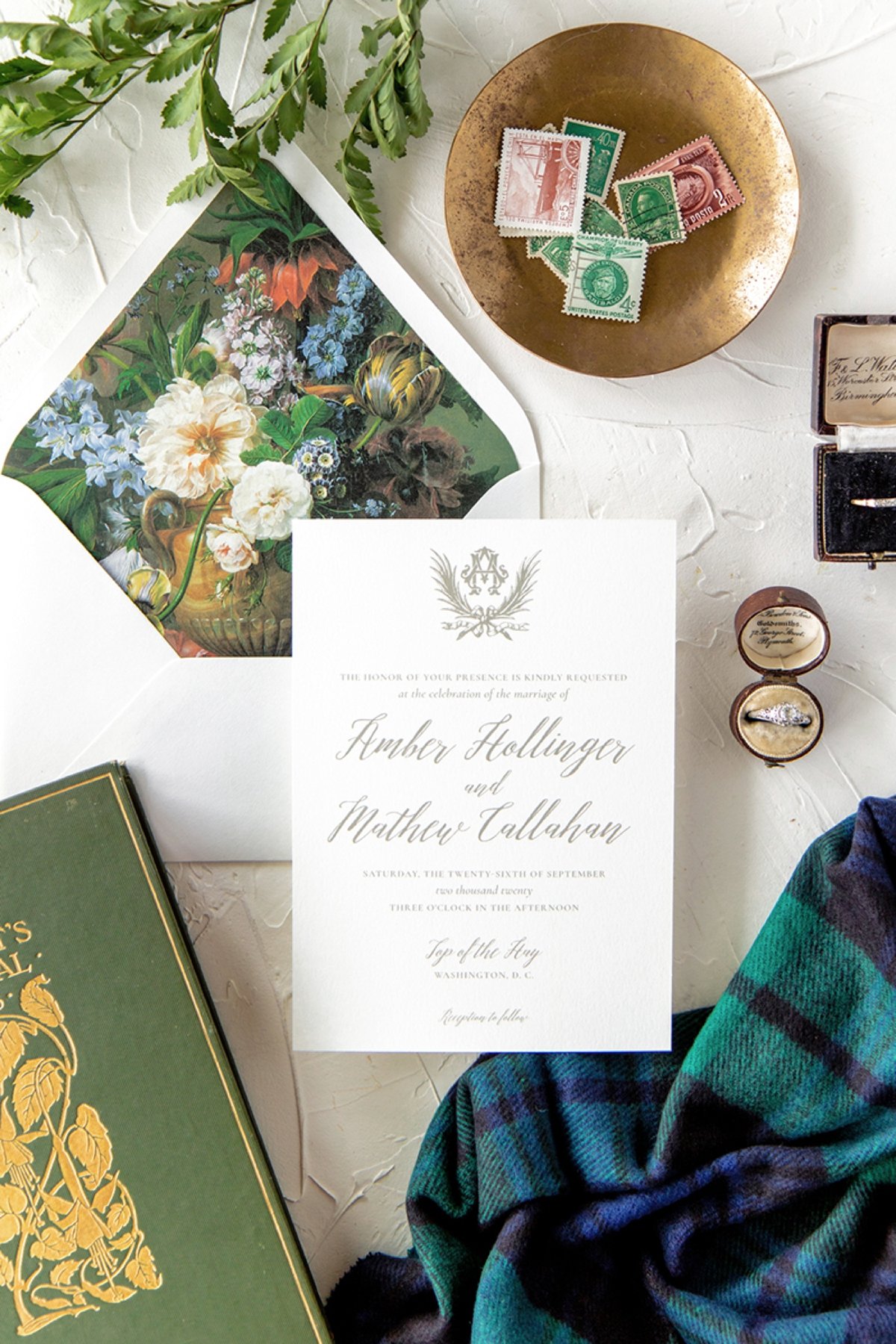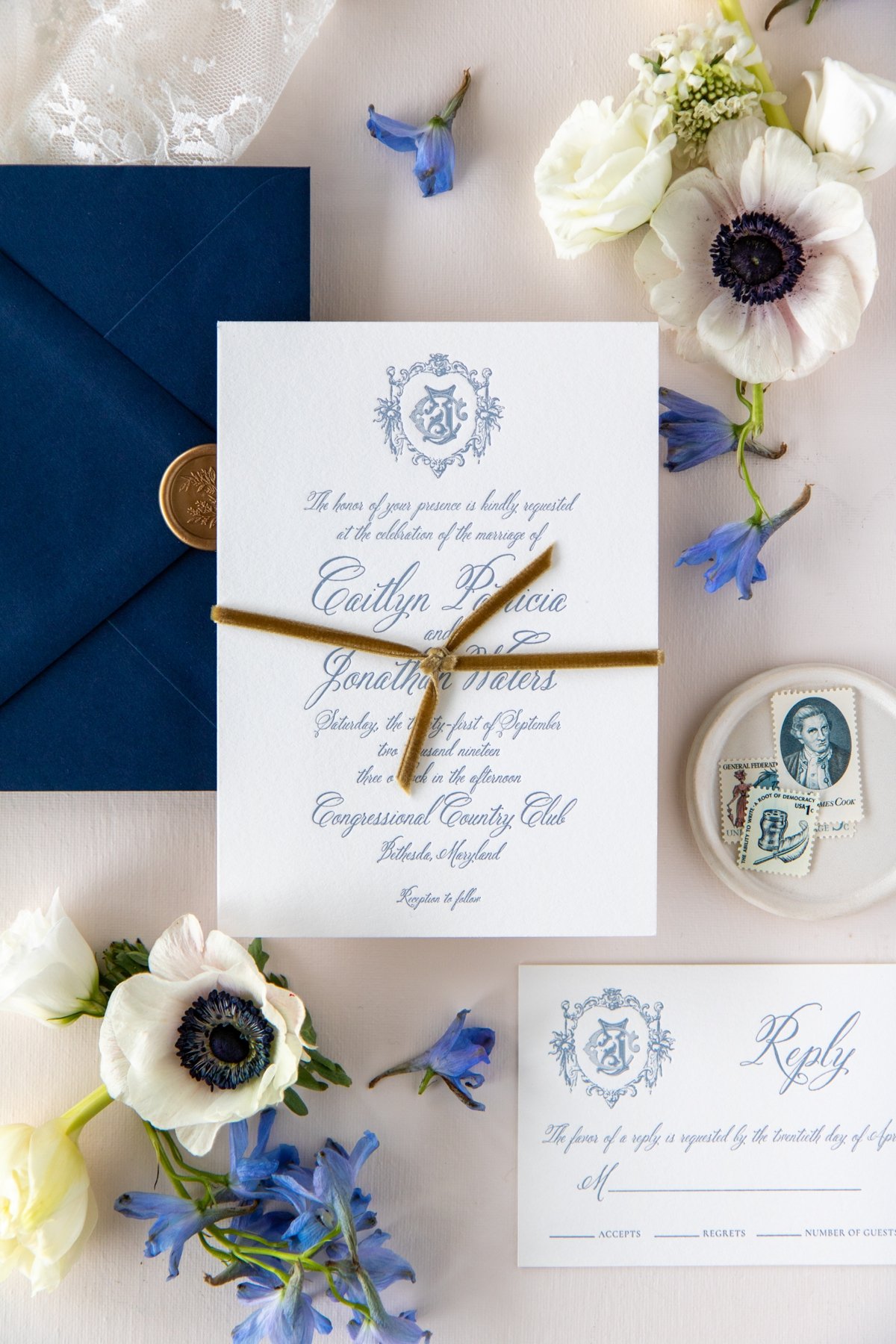Weddings are formal occasions. So, even if you’re planning an informal affair, your invitations still have to reflect proper etiquette. Avoiding these common grammar mistakes will help!
In addition to avoiding the mistakes listed below, you should also spell out as much on your invitations as possible. This includes people’s full names, street addresses, PO boxes, and the like. Abbreviations are considered informal, so they should be avoided.
Common Grammar Mistakes on Wedding Invitations
Honor vs. Honour and Favor vs. Favour
The British spelling includes a “u” in these words and therefore denotes an event that is a bit more formal or traditional. Usually, this spelling will be used when the ceremony is taking place in a house of worship.
Stationery vs. Stationary
“Stationery” refers to your wedding invitations. “Stationary” refers to a still object. A minor difference in spelling, but it’s important!
Aisle vs. Isle
During your ceremony, you will walk down the “aisle.” An “isle” is a small island.
Fiancé vs. Fiancée
“Fiancé,” with one “e” at the end, refers to a man who is engaged to be married. Conversely, “fiancée,” with two “e”s, refers to a woman who is engaged to be married. Although they are spelled differently, they are pronounced exactly the same!
Your Wedding Year
If you choose to spell out your wedding year on your invitations, it should not contain the word “and” or any punctuation. For example, you would write 2022 as “two thousand twenty two,” not “two-thousand and twenty-two.”
RSVP
It’s a little-known fact that RSVP stands for “répondez, s’il vous plaît,” which means “please reply” in French. So, you can either use “RSVP” or “please reply,” but not both. “Please RSVP” is redundant! Other variations you can opt to use are “kindly respond by” and “the favour of reply is requested.”
Hotel Blocks
When listing available hotel accommodations on the Details card in your invitation suite, it is proper to use the word “has” instead of “have.” This is because you are referring to a singular block of rooms, as opposed to multiple rooms.
Time
Times should be spelled out in all lowercase. When referring to a time on the hour, it should be followed by “o’clock” (note the lowercase and the apostrophe). When referring to a time not on the hour, it should be hyphenated (e.g. “two-thirty” instead of “two thirty”).
In addition, for maximum clarity, references to time should always be followed by “in the morning,” “noon,” “in the afternoon,” “in the evening,” or “midnight.”
-
12:01 a.m. – 11:59 a.m. is morning.
-
12:00 p.m. is noon.
-
12:01 p.m. – 5:59 p.m. is afternoon.
-
6:00 p.m. – 11:59 p.m. is evening.
-
12:00 a.m. is midnight.
Capitalization
Proper nouns, such as the names of people and places, should always be capitalized. The beginnings of sentences, or of each new thought on an invitation, should also be capitalized. In addition, always capitalize the “t” in two (e.g. “Two thousand eighteen” instead of “Two Thousand Eighteen”). When it comes to a dress code, only the first word will be capitalized (e.g. “Black tie” instead of “Black Tie”).
Now that you’re aware of these common grammar mistakes made on wedding invitations, you’ll be able to easily avoid them! Want to know more about addressing your invitations properly so you don’t make an unintentional faux pas? Check out our guide to addressing your guests!

